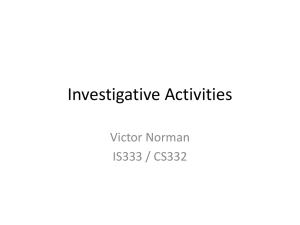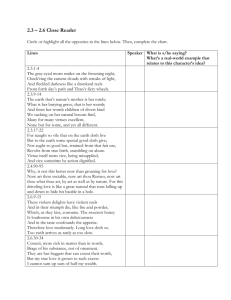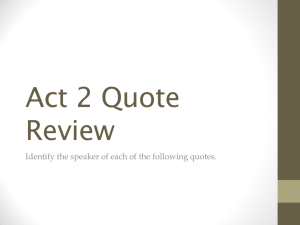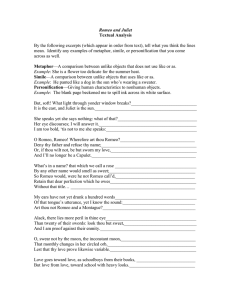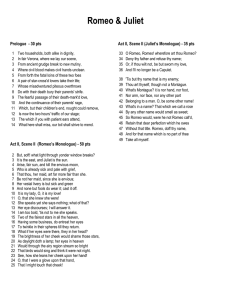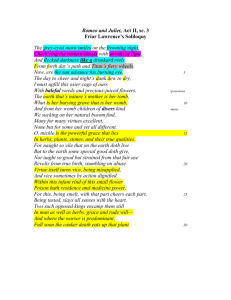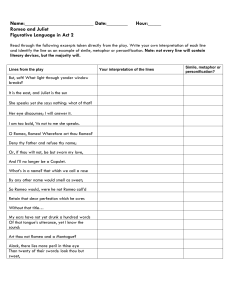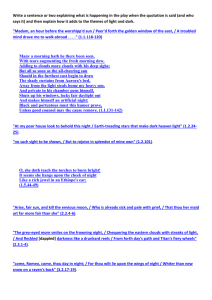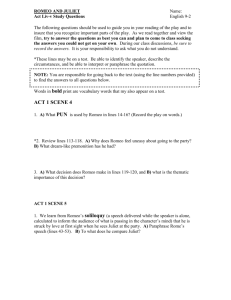ActII_closeread - Marblehead High School
advertisement
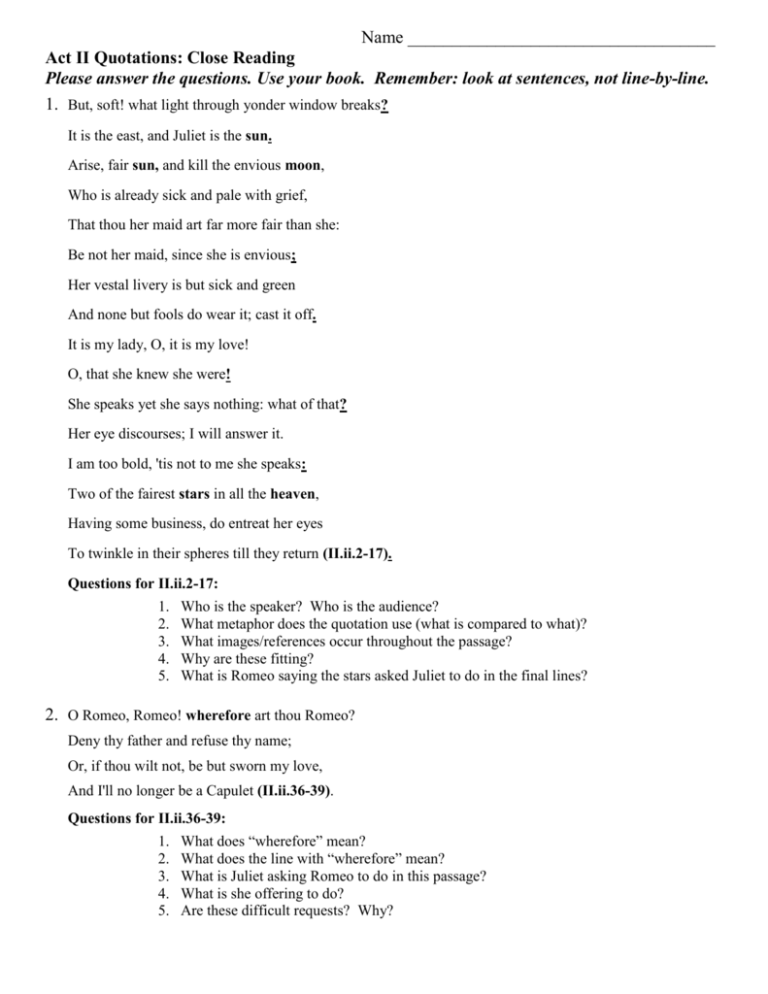
Name ___________________________________ Act II Quotations: Close Reading Please answer the questions. Use your book. Remember: look at sentences, not line-by-line. 1. But, soft! what light through yonder window breaks? It is the east, and Juliet is the sun. Arise, fair sun, and kill the envious moon, Who is already sick and pale with grief, That thou her maid art far more fair than she: Be not her maid, since she is envious; Her vestal livery is but sick and green And none but fools do wear it; cast it off. It is my lady, O, it is my love! O, that she knew she were! She speaks yet she says nothing: what of that? Her eye discourses; I will answer it. I am too bold, 'tis not to me she speaks: Two of the fairest stars in all the heaven, Having some business, do entreat her eyes To twinkle in their spheres till they return (II.ii.2-17). Questions for II.ii.2-17: 1. 2. 3. 4. 5. Who is the speaker? Who is the audience? What metaphor does the quotation use (what is compared to what)? What images/references occur throughout the passage? Why are these fitting? What is Romeo saying the stars asked Juliet to do in the final lines? 2. O Romeo, Romeo! wherefore art thou Romeo? Deny thy father and refuse thy name; Or, if thou wilt not, be but sworn my love, And I'll no longer be a Capulet (II.ii.36-39). Questions for II.ii.36-39: 1. 2. 3. 4. 5. What does “wherefore” mean? What does the line with “wherefore” mean? What is Juliet asking Romeo to do in this passage? What is she offering to do? Are these difficult requests? Why? Act II, scene 3: The scene opens with a new character… The grey-eyed morn smiles on the frowning night, Speaker? What type of speech is this? Explain. Chequering the eastern clouds with streaks of light, And flecked darkness like a drunkard reels What time of day is it? From forth day's path and Titan's fiery wheels: Label as many literary devices as you identify. Now, ere the sun advance his burning eye, The day to cheer and night's dank dew to dry, I must up-fill this osier cage of ours What is the friar doing? With baleful weeds and precious-juiced flowers. NOTE: The lines mark the sentences in this speech. The earth that's nature's mother is her tomb; Explain these two lines using biology. What is her burying grave that is her womb, And from her womb children of divers kind her=? children = ? We sucking on her natural bosom find, Many for many virtues excellent, Do all plants have some virtue? virtue=? (see notes p. 84) None but for some and yet all different. O, mickle is the powerful grace that lies mickle = ? In herbs, plants, stones, and their true qualities: For nought so vile that on the earth doth live According to the friar, is anything pure evil? But to the earth some special good doth give, Nor aught so good but strain'd from that fair use Is anything pure good (uncorruptable)? Revolts from true birth, stumbling on abuse: *Spend time on next two lines: paraphrase Virtue itself turns vice, being misapplied; * And vice sometimes by action dignified. * Within the infant rind of this small flower What opposing powers do plants have? Poison hath residence and medicine power:b For this, being smelt, with that part cheers each part; Being tasted, slays all senses with the heart. Two such opposed kings encamp them still In man as well as herbs, grace and rude will; Are humans the same way? And where the worser is predominant, If….(finish sentence) Full soon the canker death eats up that plant. (II.iii.1-31) then…
